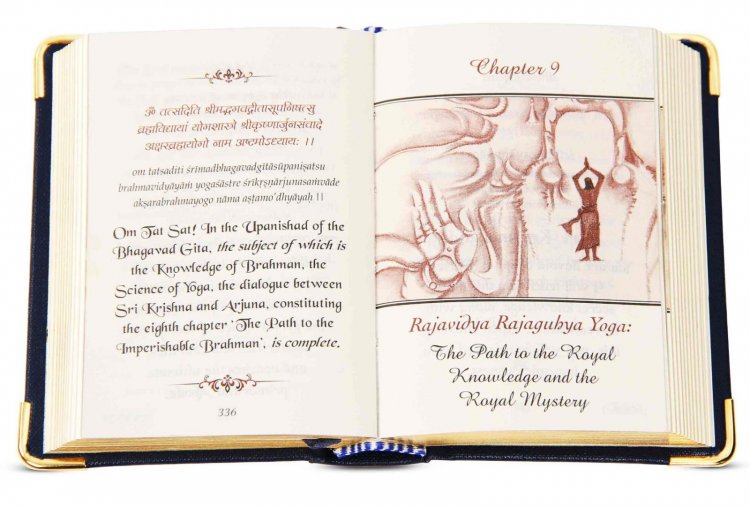Lessons from Bhagavad Gita

The Bhagavad Gita, or the Gita, is the 700 verse Hindu scripture that depicts a long dialogue that takes place between Lord Krishna and Pandava prince Arjun before the start of the infamous Kurukshetra war. The teachings by Lord Krishna helped change Arjun’s perspective about life and, thus, his life path.
At a time when Indian nationalists were seeking an indigenous basis for social and political action against the British colonial rule, Bhagavad Gita provided them with a rationale for their activism and fight against injustice.
In the more recent times, especially in this 21st century, one would be pleasantly amused to know the relevance of the teachings in Gita that can be applied in our day to day lives in order to attain a better, stable, fruitful, better-equipped life. So, we have listed down a few of the important lessons from the epic literary work that you can incorporate in your daily lives:
- Good management - If we carefully study the Gita, we can summarise that the central issue is all about doing work (karma yoga), in the most efficient manner.
- Motivation - A careful study of Gita from this perspective will lead us to important principles that managers must inherit to create rightful and long-living organizations.
- Work ethic - There are many verses in Chapter 2 and the chapters following that which educates us about the four aspects of the definition of work;
1. The doer has the right to work
2. The doer has no control on outcomes/ fruits of action
3. The doer has no control over the root causes of the fruits of action
4. There is no choice to revel in inaction
- Dharma - Each and every one of us is born with this “sacred duty” that we must fulfil during this lifetime. For Arjuna, it was the duty of being a warrior at the time of war.
“Look to your own duty; do not tremble before it…your own duty done imperfectly is better than another man’s done well.”
- Discipline - In the epic scene, Arjuna stops in the middle of a battlefield, forfeiting his sacred duty. Then Krishna comes along and demands him to take action.
Applying this in our present-day lives, in difficult times we stop, paralyzed with fear and doubt. The lesson here is to never stop turning the wheelset in motion.
“The disciplined man attains perfect peace; the undisciplined man is in bondage.”
- Self-alignment/ Self-knowledge - the spiritual purpose of physical practice is so the spine is strong enough to maintain healthy alignment in meditation for numerous hours.
“So, sever the ignorant doubt in your heart with the sword of self-knowledge, Arjuna! Observe your discipline arise!”
There you go! We hope that imparting some knowledge from our very own Hindu epic story may help you align your mind and body, helps in your spiritual progress along with it, giving you just the direction you needed to look at.















































